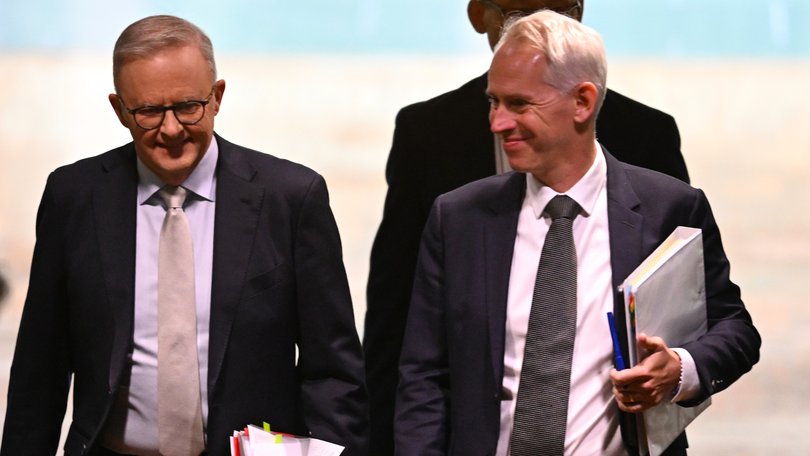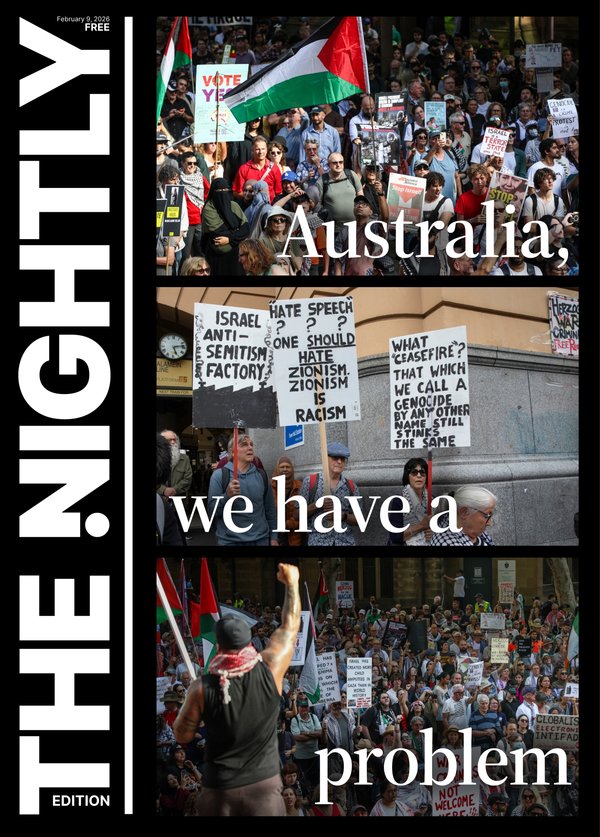Immigration detention: Labor faces push to rewrite deportation bill as it awaits major High Court ruling
Labor will need to rewrite its contentious deportation legislation to get it through Federal Parliament after the Coalition and the Greens rounded on the plan.

Labor will need to rewrite its contentious deportation legislation to get it through Federal Parliament after the Coalition and the Greens rounded on the plan.
The Opposition is demanding more than a dozen amendments while the Greens are outright opposed, leaving the Federal Government with little choice but to negotiate if wants to push ahead with sweeping powers to deport non-citizens who refuse to cooperate with authorities.
The political battlelines have been drawn as the High Court prepares to hand down its judgment on Friday in the case that prompted Labor to bring forward the emergency Bill.
Sign up to The Nightly's newsletters.
Get the first look at the digital newspaper, curated daily stories and breaking headlines delivered to your inbox.
By continuing you agree to our Terms and Privacy Policy.A group of between 150 and 200 immigration detainees could be released if the Commonwealth loses its case against an Iranian detainee - known as ASF17 - who is resisting deportation amid fears he could face the death penalty because of his sexuality.
The deportation legislation is the third tranche of laws to deal with the consequences of the High Court’s earlier ruling that indefinite detention was unlawful, which forced the release of 153 non-citizens - including convicted murderers and sex offenders - into the community.
The Federal Government’s handling of the cohort of ex-detainees has been under intense scrutiny after one of the men was allegedly involved in the bashing of Perth grandmother Ninette Simons.
The proposed new legislation would allow Government to impose a prison sentence of between one and five years on asylum seekers who refuse to co-operate with their deportation.
Under the Bill’s most contentious provision, the immigration minister would be able to deny visa applications from countries whose governments do not accept involuntary deportations, such as Iran, South Sudan and Zimbabwe.
The power to blacklist entire countries has sparked fear among migrant communities and triggered a backlash from Labor’s youth wing and grassroots pro-refugee group, which described it as a “huge over-reach”.
In a report published on Tuesday, the Labor-led Senate committee examining the Bill said the minister should consider “community impacts” when deciding to designate a “removal concern” country.
It recommended the Bill be passed.
But the Coalition and the Greens committee members published separate dissenting reports, detailing serious concerns that will frame the political fight when the Bill returns to Parliament.
In their report, Coalition committee members said while they supported the intent of the Bill they held “significant concerns” about potential unintended consequences, including the risk of encouraging people smugglers.
The Department of Home Affairs hinted at the risk in its own submission to the inquiry before officials publicly played down the concern.

The Coalition members made 17 recommendations to add safeguards to the Bill., including a requirement that the minister consider a list of factors before blacklisting a country.
Shadow home affairs minister James Paterson and assistant minister for multicultural engagement Paul Scarr said the fact Labor wanted the Bill passed unamended showed a “flagrant disregard for multicultural communities and legal experts” who raised concerns during the inquiry.
“The Coalition will continue to hold the Labor Government accountable for its rushed and reckless approach to this legislation, and will do everything we can to fix Labor’s mess by strengthening this Bill,” Senator Paterson and Senator Scarr said in a statement.
Greens immigration spokesman David Shoebridge said the Bill was a “direct threat to diaspora communities” and should be rejected in full.
Immigration Minister Andrew Giles has been contacted for comment.
Mr Giles has previously argued the powers were necessary because the Federal Government had “very limited” options to deal with foreigners – including criminals – who had exhausted legal avenues to remain in Australia and whose home nation wouldn’t accept them.
